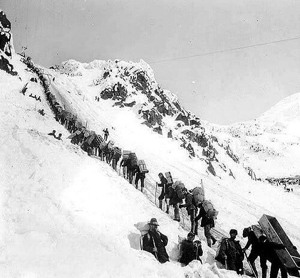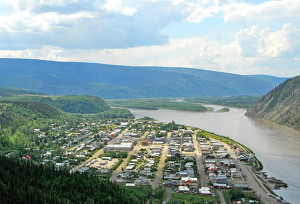Tavex uses cookies to ensure website functionality and improve your user experience. Collecting data from cookies helps us provide the best experience for you, keeps your account secure and allows us to personalise advert content. You can find out more in our cookie policy.
Please select what cookies you allow us to use
Cookies are small files of letters and digits downloaded and saved on your computer or another device (for instance, a mobile phone, a tablet) and saved in your browser while you visit a website. They can be used to track the pages you visit on the website, save the information you enter or remember your preferences such as language settings as long as you’re browsing the website.
| Cookie name | Cookie description | Cookie duration |
|---|---|---|
| tavex_cookie_consent | Stores cookie consent options selected | 60 weeks |
| tavex_customer | Tavex customer ID | 30 days |
| wp-wpml_current_language | Stores selected language | 1 day |
| AWSALB | AWS ALB sticky session cookie | 6 days |
| AWSALBCORS | AWS ALB sticky session cookie | 6 days |
| NO_CACHE | Used to disable page caching | 1 day |
| PHPSESSID | Identifier for PHP session | Session |
| latest_news | Helps to keep notifications relevant by storing the latest news shown | 29 days |
| latest_news_flash | Helps to keep notifications relevant by storing the latest news shown | 29 days |
| tavex_recently_viewed_products | List of recently viewed products | 1 day |
| tavex_compare_amount | Number of items in product comparison view | 1 day |
| Cookie name | Cookie description | Cookie duration |
|---|---|---|
| chart-widget-tab-*-*-* | Remembers last chart options (i.e currency, time period, etc) | 29 days |
| archive_layout | Stores selected product layout on category pages | 1 day |
| Cookie name | Cookie description | Cookie duration |
|---|---|---|
| cartstack.com-* | Used for tracking abandoned shopping carts | 1 year |
| _omappvp | Used by OptinMonster for determining new vs. returning visitors. Expires in 11 years | 11 years |
| _omappvs | Used by OptinMonster for determining when a new visitor becomes a returning visitor | Session |
| om* | Used by OptinMonster to track interactions with campaigns | Persistent |
| Cookie name | Cookie description | Cookie duration |
|---|---|---|
| _ga | Used to distinguish users | 2 years |
| _gid | Used to distinguish users | 24 hours |
| _ga_* | Used to persist session state | 2 years |
| _gac_* | Contains campaign related information | 90 days |
| _gat_gtag_* | Used to throttle request rate | 1 minute |
| _fbc | Facebook advertisement cookie | 2 years |
| _fbp | Facebook cookie for distinguishing unique users | 2 years |
The Klondike Gold Rush

The Klondike Gold Rush of the late 19th century stands as a significant chapter in the history of gold exploration and its impact on society.
This historic event, which took place from 1896 to 1899, was a mass migration of an estimated 100,000 prospectors to the Klondike region of the Yukon in Canada, driven by the dream of striking it rich by discovering gold.
This captivating journey through time explores the story of gold and its origins, challenges, and enduring legacy of the Klondike Gold Rush.
The Spark of Discovery
The Klondike Gold Rush began in August 1896 when George Carmack, along with his indigenous companions Skookum Jim and Tagish Charlie, made a remarkable discovery on Bonanza Creek in the Yukon Territory, Canada. A single gold nugget triggered a frenzy that would change the course of history.
News of the discovery spread like wildfire, igniting gold fever across the globe. People from all walks of life abandoned their routines, chasing dreams of instant wealth in the Klondike, by the prospect of leaving with a large amount of gold, or even just an ounce of gold.
The news of Klondike discover came at the end of a number of recessions and bank failures. The United States at the time use The Gold Standard, and gold shortages had been lowering the Dollar value.
The Treacherous Journey

Prospectors faced a grueling journey to find gold, overcoming treacherous mountain passes and harsh weather conditions. The Chilkoot Trail and White Pass Trails were notorious for their difficulty and became synonymous with the struggles of Klondike hopefuls.
The Chilkoot Pass was a steep ascent through the snowy mountains, but the White Pass was renowned for mud slides and became known as the ‘Dead Horse Trail’ due to the large number of pack animals abandoned by their owners after becoming stuck.
The influx of people in 1897 became known as ‘stampeders’
These brave individuals carried heavy loads of supplies, enduring extreme hardships, and braving the elements as they made their way towards the goldfields. Both routes came with high levels of avalanche risks and the chance of getting hypothermia. Additionally, murders and suicides were also common among vulnerable travellers, with many abandoning the route half way along.
 Out of stock
Out of stock
Mining in the Klondike was challenging; gold was unevenly dispersed, and predicting where deposits may be found was nearly impossible. The severe weather in Canada meant that the earth was coated in permafrost, making it difficult to excavate and the rivers extremely dangerous to pan in. The days were short, and mining was impossible without sunshine.
Life in the Klondike
The rush led to the rapid development of towns like Dawson City, Yukon, which sprang up to support the influx of prospectors. Dawson City was founded at the confluence of the Klondike river and Yukon rivers, making it the perfect place for the centre of the gold rush.
These towns provided essential services like food, lodging, and equipment for the gold seekers. They also became centres of trade and commerce. However, with the promise of gold came the challenges of maintaining law and order, leading to an ebb and flow of prosperity.
In 1895 the population in Dawson City was just 500, but two years later it had increased to 30,000
Life in the goldfields was grueling. Gold miners faced exhausting labor, harsh winters, and limited resources. Few struck it rich by the discovery of gold, while many struggled to make ends meet while searching for this precious metal.
The Legacy

While many prospectors did not strike it rich, and the rush itself was relatively short-lived, the legacy of the Klondike Gold Rush remains. It contributed to the development of the Yukon and left a lasting mark on the history of the North American frontier. The Klondike Gold Rush left an indelible mark on pop culture. Songs, stories, and legends emerged from this era, cementing its place in history.
The influx of gold into this region boosted economies, financed infrastructure, and advanced technology
It played a crucial role in shaping the modern world. The gold rush in Klondike has now effectively ended when a new gold mine was discovered in Nome, Alaska. With low amounts of gold left in Klondike, gold rush participants left in pursuit of the new gold rush, leaving now a population of around 1,375 in Dawson City.
Gold Mines in Canada Today
As of 2024, gold is still mined in Canada. According to the National Resources Canada, in 2021 gold was Canada’s most valuable mined commodity, with a production value of $13.7 billion. Gold is mined in 10 Canadian provinces with the main supply of fine gold coming from Ontario and Quebec which account for 70% of mined gold production in Canada as of 2021.
Canadian mines produced 223 tonnes of gold in 2021, making Canada the fourth largest global supplier.
Conclusion
The Klondike Gold Rush was a tumultuous period in history, driven by the allure of gold and the indomitable spirit of those who sought their fortunes. It left behind a legacy of cultural, economic, and technological advancements that continue to influence our world today.
FAQs
1) What is the gold standard?
The gold standard, a historic monetary system that once held sway over international finance, continues to captivate the imagination of economists, historians, and financial enthusiasts alike. Read more about what the gold standard is here.
2) How long did the Klondike Gold Rush last?
The Klondike Gold Rush began in 1896 and peaked in 1897 but continued to have an impact on the region for several years.

















